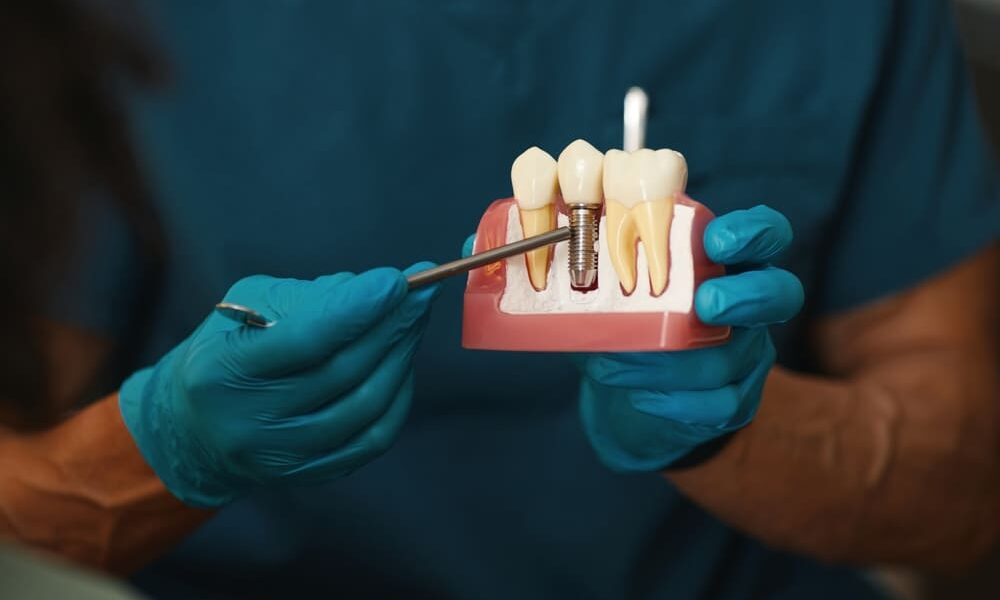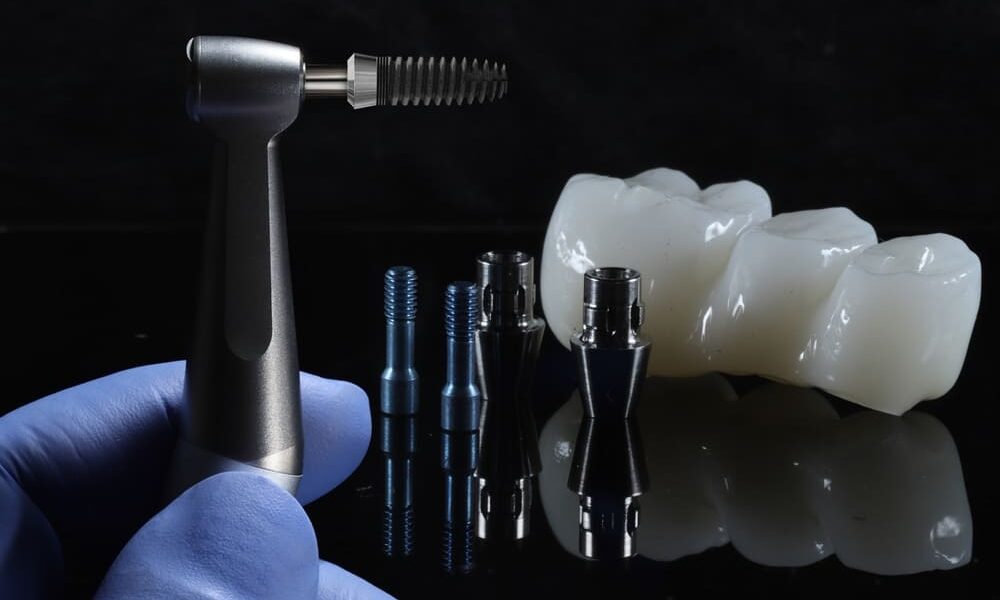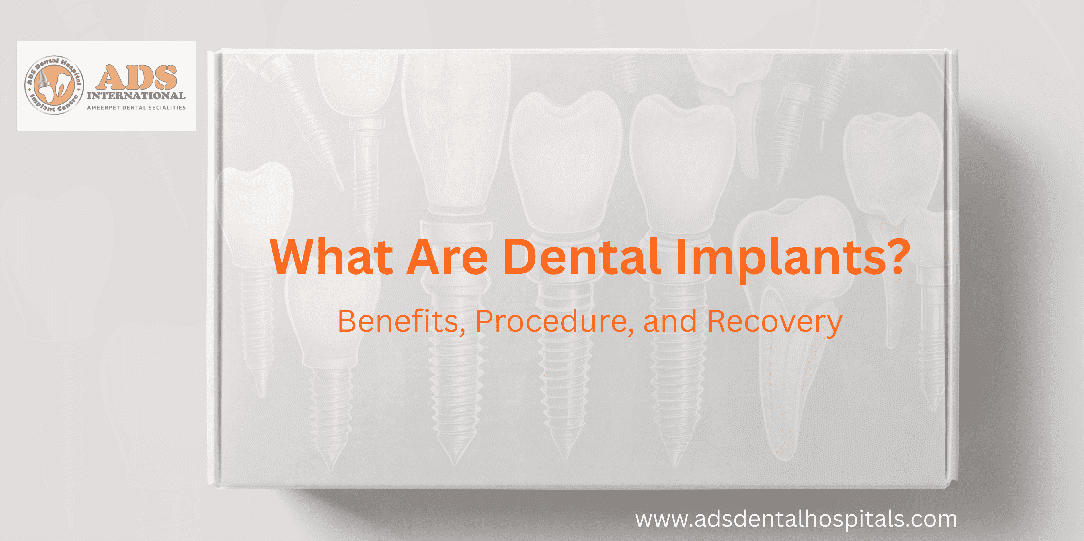Missing teeth can significantly impact your quality of life on Dental Implants and , affecting everything from your ability to eat comfortably to your confidence when smiling. Fortunately, modern dentistry offers a revolutionary solution that has transformed countless lives: dental implants.
This comprehensive guide explores everything you need to know about this remarkable tooth replacement option.
- Dental implants represent a breakthrough in restorative dentistry, offering a permanent solution that closely mimics natural teeth.
- At their core, dental implants are small titanium or zirconia posts that are surgically placed into the jawbone, serving as artificial tooth roots.
- These biocompatible materials integrate seamlessly with your bone tissue through a process called Osseo integration, creating a stable foundation for replacement teeth.
- Once the implant has fully integrated with the bone, a crown, bridge, or denture can be attached to restore both function and aesthetics.
- This three-part system – the implant post, abutment, and prosthetic tooth – works together to provide a solution that feels, looks, and functions like your natural teeth.

- Your implant journey begins with a thorough consultation where your dentist evaluates your oral health, bone density, and overall medical condition.
- Advanced imaging techniques help determine whether you have sufficient bone structure to support an implant and allow for precise treatment planning tailored to your specific needs.
- The implant placement procedure is typically performed under local anaesthesia to ensure your comfort.
- Your oral surgeon creates a small incision in the gum tissue and carefully places the titanium post into the jawbone.
- The precision of modern implant surgery has made this procedure remarkably predictable and comfortable for patients.

- Over the next three to six months, your bone gradually grows around and fuses with the implant surface in a process called Osseo integration.
- This biological bonding is what gives dental implants their exceptional stability and longevity.
- Once Osseo integration is complete, your dentist will attach an abutment to the implant, which serves as the connection point for your new tooth.
- Finally, a custom-crafted crown, bridge, or denture is secured to the abutment, completing your restoration.
- For patients missing most or all of their teeth, full mouth dental implants offer life-changing possibilities.
- The innovative All-on-4 technique uses just four strategically placed implants per arch to support a complete set of replacement teeth.
- This approach minimizes surgery time and cost while providing immediate functionality.
- Some patients may require additional implants based on their bone structure and individual needs.
- Full arch restoration can often be completed in fewer appointments than traditional methods, allowing patients to enjoy their new smiles sooner.
- Understanding the recovery process helps set realistic expectations and ensures optimal healing.
- The initial recovery period typically lasts one to two weeks, during which you may experience some swelling and mild discomfort.
- These symptoms are normal and can be effectively managed with prescribed medications and proper care.
- During the early healing phase, it’s important to stick to soft foods and maintain excellent oral hygiene as directed by your dental team.
- Avoid hard, crunchy, or sticky foods that could disturb the healing tissues.
- Most patients can return to normal activities within a few days, though complete osseointegration takes several months.
- Dental implants offer numerous advantages that set them apart from other tooth replacement options.
- Perhaps most importantly, they restore your ability to eat your favourite foods with confidence, as implants can withstand the same chewing forces as natural teeth.
- The aesthetic benefits are equally impressive.
- Modern dental implants are virtually indistinguishable from natural teeth, allowing you to smile, laugh, and speak without self-consciousness.
- Unlike removable dentures, implants won’t slip or click, giving you confidence in social situations.
- From a health perspective, dental implants help preserve your facial structure by preventing the bone loss that typically occurs after tooth loss.
- They also protect adjacent healthy teeth, as they don’t require the grinding down of neighbouring teeth that’s necessary for traditional bridges.
- With proper care, dental implants can last a lifetime, making them an excellent long-term investment in your oral health and quality of life.
While dental implants in Ameerpet offers exceptional benefits, they’re not suitable for everyone.
The investment is typically higher than other tooth replacement options, though many patients find the long-term benefits justify the cost.
Successful implant treatment requires adequate bone density and volume in the jaw.
Certain health conditions, such as uncontrolled diabetes, active gum disease, or heavy smoking, may affect healing and implant success.
Our dental team will carefully evaluate these factors during your consultation.
There are three main types of dental implants, each designed for specific situations:
- Endosteal implants are the most common type, placed directly into the jawbone. These are suitable for patients with adequate bone density and typically cost between ₹30,000 and ₹50,000 per implant.
- Subperiosteal implants sit on top of the jawbone under the gums, making them an option for patients with insufficient bone height. These range from ₹30,000-65,000 per implant.
- Zygomatic implants are anchored in the cheekbone and are reserved for patients with severe bone loss in the upper jaw. These specialized implants cost between ₹50,000-90,000.
For full mouth restoration, costs typically range from ₹4, 00,000 to 7, 00,000, depending on the complexity of your case and the number of implants required.
- Dental implants have revolutionized tooth replacement, offering a permanent solution that closely replicates the function and appearance of natural teeth.
- While the investment and treatment timeline require careful consideration, the long-term benefits – improved function, enhanced aesthetics, and preserved oral health – make dental implants an excellent choice for many patients.
- If you’re considering dental implants, the first step is scheduling a consultation with a qualified implant dentist.
- They can evaluate your specific situation, discuss your options, and help you determine whether implant dentistry is the right solution for restoring your smile and confidence.
- Remember, every smile is unique, and your treatment plan should be tailored to your individual needs, goals, and circumstances.
- With proper planning and care, dental implants can provide you with a beautiful, functional smile that lasts a lifetime.
The recovery process occurs in two phases. Initial healing takes 1-2 weeks, during which you may experience mild swelling and discomfort that can be managed with prescribed medications. The complete recovery involves Osseo integration, where the bone fully integrates with the implant, taking up to six months. During recovery, it’s crucial to follow your dentist’s instructions, use prescribed oral rinses, and avoid hard foods that could disturb the healing process.
Dental implants offer numerous advantages including a completely natural appearance that’s indistinguishable from real teeth, restored chewing ability allowing you to enjoy all your favourite foods, improved speech clarity, exceptional durability that can last a lifetime with proper care, and preservation of jawbone structure preventing facial sagging. Unlike dentures, implants won’t slip or cause embarrassing clicking sounds.
The dental implant procedure is a multi-step process that includes an initial consultation and assessment, surgical placement of the titanium post into the jawbone, a healing period for Osseo integration, and finally the attachment of the crown or prosthetic tooth. The entire process typically takes 3-6 months, though immediate loading options may be available in certain cases.
Full mouth dental implant restoration involves replacing all teeth in one or both arches using strategically placed implants. The popular All-on-4 method uses four implants per arch to support a complete set of replacement teeth. Some patients may need additional implants based on their bone structure and specific needs. Full arch restoration can often provide immediate functionality and dramatically improve quality of life.
Several factors may make someone unsuitable for dental implants, including the higher cost compared to other tooth replacement options, insufficient jawbone density or volume, uncontrolled health conditions like diabetes, active gum disease or severe bone loss, heavy smoking habits that impair healing, and certain medications that may compromise the healing process. A thorough evaluation by your dental team will determine your candidacy.
Dental implant costs vary significantly based on type and complexity. Endosteal implants (most common) range from ₹ 30,000-50,000 per implant, subperiosteal implants cost ₹ 30,000-65,000, and Zygomatic implants range from ₹50,000-90,000. Full mouth restoration typically costs between ₹4, 00, 000-7, 00,000, while All-on-4 treatment ranges from ₹1, 50,000-2, 50,000 per arch. Costs vary based on materials used, complexity of the case, and geographic location.
The three primary types of dental implants are: Endosteal implants, which are the most common and are placed directly into the jawbone; Subperiosteal implants, which sit on top of the jawbone under the gums and are used when there’s insufficient bone height; and Zygomatic implants, which are anchored in the cheekbone and are reserved for patients with advanced bone loss in the upper jaw. Each type is designed for specific clinical situations and patient needs.
Take the first step toward your new smile by scheduling a consultation where you’ll discuss your specific needs and goals, receive a personalized treatment plan tailored to your unique situation.

